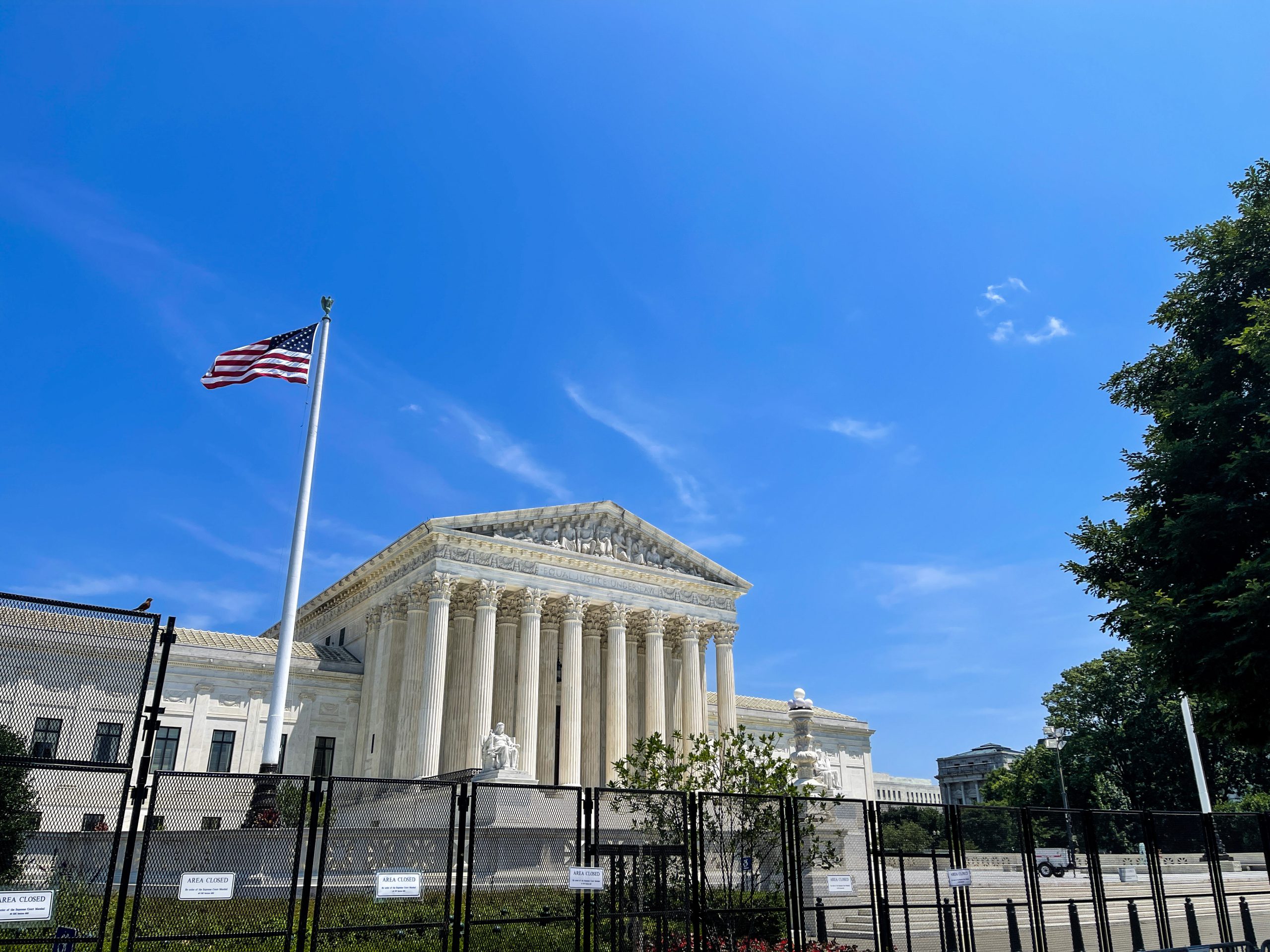Indianz.Com > News > Cronkite News: U.S. Supreme Court ruling called a ‘disaster’ for Indian Country

Court says states can try some tribal crimes; critics call it a ‘disaster’
Thursday, June 30, 2022
Cronkite News
WASHINGTON, D.C. — A divided Supreme Court ruled Wednesday that states can prosecute non-Natives for crimes against Native people on tribal lands, a ruling that critics called a “disaster” for tribal sovereignty and an “act of conquest.”
The court’s 5-4 ruling reverses “200 years of well-settled law” during which only tribal and federal courts had authority to prosecute crimes committed against Indigenous people on tribal lands.
But Justice Brett Kavanaugh wrote that states do not need “a permission slip” from Congress to try non-Natives for crimes committed within their borders, even if they were committed on tribal lands.
“The Court’s precedents establish that Indian country is part of a state’s territory and that, unless preempted, States have jurisdiction over crimes committed in Indian country,” Kavanaugh wrote for the majority.
The ruling was the latest in Oklahoma’s fight to reverse a 2020 Supreme Court decision that said a 19th century treaty establishing the Muscogee (Creek) Nation reservation had never been disestablished. Because of that, Seminole tribe member Jimcy McGirt’s state court conviction for raping an Indigenous child on tribal land needed to be overturned. McGirt was quickly retried in federal court, convicted in November 2020 and sentenced to life in August 2021. But his case sparked a torrent of appeals in state courts, which determined that much of the eastern half of the state – including Tulsa – was still tribal land, and state court convictions of tribal members there also had to be overturned. The state pressed dozens of appeals with the Supreme Court, which agreed to take the case of Victor Manuel Castro-Huerta, a non-Native, who was convicted of child neglect for the malnourishment of his 5-year-old stepdaughter, a Cherokee. Although both McGirt and Castro-Huerta involved crimes against Native Americans on tribal land, Castro-Huerta is not a member of any tribe. Kavanaugh said that Castro-Huerta’s claim that he is not subject to state prosecution makes Indigenous victims “second-class citizens.” He said the state has “concurrent jurisdiction” with the federal government to prosecute such cases.This #SCOTUS opinion in #CastroHuerta is an act of conquest. Full stop.
— Elizabeth Hidalgo Reese (Yunpovi) (@yunpovi) June 29, 2022
The right and power of tribes to rule themselves is being dismissed in favor of state power.
Tribes are…I can’t even write it…part of states.
U.S. Supreme Court Decision in Oklahoma v. Castro-Huerta
Syllabus |
Opinion [Kavanaugh] |
Dissent [Gorsuch] |
Complete Document
U.S. Supreme Court Documents in Oklahoma v. Castro-Huerta
Questions Presented |
Docket Sheet: No. 21-429 |
Oral Argument Transcript |
Day Call
Related Stories
Supreme Court nominee advances with show of support for tribal sovereignty (April 5, 2022)Supreme Court hears cases with high stakes for Indian Country (February 21, 2022)
Gaylord News: Supreme Court takes another look at Indian Country dispute (January 31, 2022)
Chuck Hoskin: Cherokee Nation deserves to be treated with respect (January 31, 2022)
Supreme Court surprises by taking up contentious Indian law case (January 21, 2022)
Note: This story originally appeared on Cronkite News. It is published via a Creative Commons license. Cronkite News is produced by the Walter Cronkite School of Journalism and Mass Communication at Arizona State University.
Search
Filed Under
Tags
More Headlines
Cronkite News: Community pays tribute to Congressman Raúl Grijalva
Press Release: Sen. Gallego (D-Arizona) protests firings at Department of Veterans Affairs
Native America Calling: The righteous rebellion of Indigenous punk rock
NAFOA: 5 Things You Need to Know this Week (March 31, 2025)
Chuck Hoskin: Cherokee Nation celebrates Cherokee women
Native America Calling: Tribal rights, a new restaurant and more are on The Menu
Native America Calling: Tribes vie for better access to traditional plants
Senate committee schedules confirmation hearing for Interior nominee
Fact Sheet: Department of Health and Human Services to undergo ‘dramatic restructuring’
Press Release: Department of Health and Human Services to undergo ‘dramatic restructuring’
Native America Calling: The new Social Security reality for Native elders
Montana Free Press: Hip-hop artist Foreshadow celebrates latest release
Cronkite News: Bill creates alert system for missing and murdered relatives
Bureau of Indian Affairs approves HEARTH Act regulations for Mohegan Tribe
House Subcommittee on Indian and Insular Affairs sets field hearing for self-determination anniversary
More Headlines
Press Release: Sen. Gallego (D-Arizona) protests firings at Department of Veterans Affairs
Native America Calling: The righteous rebellion of Indigenous punk rock
NAFOA: 5 Things You Need to Know this Week (March 31, 2025)
Chuck Hoskin: Cherokee Nation celebrates Cherokee women
Native America Calling: Tribal rights, a new restaurant and more are on The Menu
Native America Calling: Tribes vie for better access to traditional plants
Senate committee schedules confirmation hearing for Interior nominee
Fact Sheet: Department of Health and Human Services to undergo ‘dramatic restructuring’
Press Release: Department of Health and Human Services to undergo ‘dramatic restructuring’
Native America Calling: The new Social Security reality for Native elders
Montana Free Press: Hip-hop artist Foreshadow celebrates latest release
Cronkite News: Bill creates alert system for missing and murdered relatives
Bureau of Indian Affairs approves HEARTH Act regulations for Mohegan Tribe
House Subcommittee on Indian and Insular Affairs sets field hearing for self-determination anniversary
More Headlines

